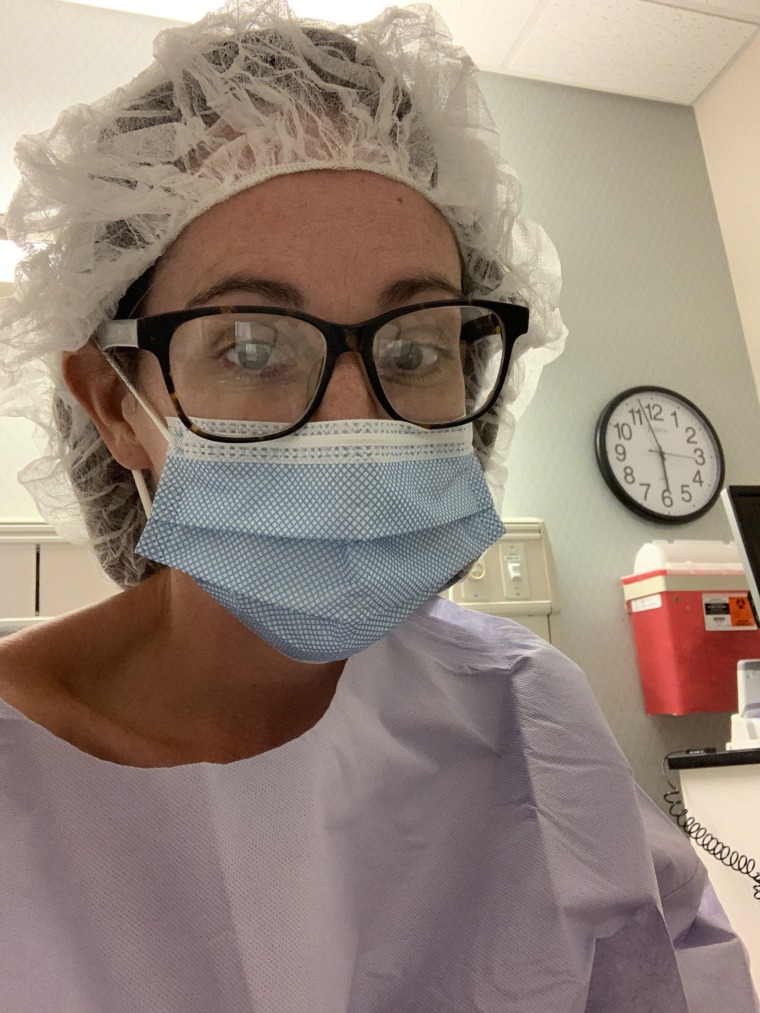Growing up, I was made to believe that getting pregnant happened easily. Like many of my peers, I thought conception was a foregone conclusion — not a calculated science.
An early bloomer, I suffered agonizing periods from the start, marked by prolonged bleeding and intense pain. I was diagnosed with endometriosis in my late teens, but the conversations with my doctors centered around pain management, not fertility.
What is endometriosis?
Endometriosis is a disease in which the tissue that lines the uterus, or endometrium, is found outside the uterus. It is a chronic, painful condition that most frequently involves a woman’s ovaries, fallopian tubes, and the tissue lining of her pelvis.
The tissue presents like normal endometrium, but because it has nowhere to exit from the body, it stays trapped, eventually developing scar tissue and adhesions. Treatment for endometriosis typically involves medication or surgery.
Endometriosis affects more than 1 in 10 reproductive-aged individuals and celebrities like Amy Schumer, Olivia Culpo, and Tara Lipinski have been candid about their diagnosis to raise awareness. According to the Endometriosis Foundation of America, endometriosis affects an estimated 200 million women worldwide and though there are effective treatments, there is no known cause or cure.
After my husband and I got married, I began exploring the impact of endometriosis on fertility. In my early twenties, the thought of babies seemed like a lifetime away for us. But as I inch closer to what will be labeled a “geriatric pregnancy,” here’s what I wish I would have known about an endometriosis — or “endo” — and how it impacts pregnancy.

Endometriosis may require seeing a specialty doctor.
While my team of doctors over the years have all been incredible, not all OB-GYNs are equipped to treat severe endometriosis.
“All OB-GYNs and primary care physicians should be educated on the various presentations of endometriosis and refer suspected cases to GYNs who are more well versed in identifying and treating endo,” Dr. Sheeva Talebian, a reproductive endocrinologist at CCRM-NY, a pioneer clinic in fertility science, told TODAY Parents. “Many women suffer for years without a proper diagnosis and the more years it is left untreated, the more severe the symptoms (which are) most commonly pain and difficulty conceiving.”
Endometriosis can make it challenging to conceive naturally.
While natural pregnancy (and carrying to full term!) is possible, many women with endometriosis struggle to conceive naturally.
“Endometriosis can make it very challenging for some to conceive,” Talebian said. “And the mechanism is not always the same in everyone. In severe cases, endometriosis can cause significant scarring of the fallopian tubes making it nearly impossible for egg and sperm to meet naturally in the body.”
Talebian shared that even in milder cases where a woman’s tubes are not impacted, other factors associated with endometriosis can inhibit fertilization.
“Endometriosis is a highly inflammatory condition,” she said. “Inflammation in the pelvis may negatively impact the health of the egg, the sperm and create a hostile environment preventing fertilization and implantation. There is a very strong association between endometriosis and difficulty conceiving and the exact mechanisms are not entirely known and are likely not the same in everyone.”
Endometriosis may cause infertility, but pregnancy is possible.
While 30 to 50% of women with endometriosis experience infertility, natural conception with endometriosis is possible.
"Many women with endometriosis can successfully conceive with their own eggs and carry healthy pregnancies to term," Talebian said.
Dr. Brian Levine, founding partner and practice director of CCRM-NY, agreed.
"Given its prevalence in the population, many people are likely conceiving and having healthy pregnancies without knowing their diagnosis," he shared with TODAY. "Given that the frequency of diagnostic surgeries for infertility are decreasing, far fewer patients are being diagnosed with endometriosis and are likely undergoing IVF for unexplained infertility, when endometriosis is likely the causative agent."
Endometriosis may put you at higher risk for miscarriage.
Statistics show that one in four pregnancies will end in miscarriage, but I was still shocked when it happened to us. It felt particularly painful after battling infertility.
“In cases of severe pelvic adhesions, endometriosis may compromise the growth of the uterus, as well as blood flow to the endometrium, increasing miscarriage risk,” Talebian shared, adding that endometriosis in some women may prematurely ‘age’ their eggs and increase the risk of chromosomal abnormalities and therefore miscarriage. “However, it is difficult to actually prove the endometriosis as the specific cause of miscarriage. If a miscarriage occurs and the pregnancy tissue shows abnormal chromosomes, we can not assume the woman has endo. Chromosomal abnormalities in the egg can be random and are more common in women over 35.”

Women who have endometriosis have an increased risk of ectopic pregnancy.
Defined as a pregnancy implanted outside of the uterus, most commonly in the fallopian tube, ectopic pregnancies are seen in women with endometriosis at a slightly higher rate due to tubal adhesions.
“Endometriosis can cause pelvic adhesions, which can impair function of the tube and increase the risk of the embryo implanting in the tube,” Talebian explained.
Pregnancy will not cure endometriosis.
While endometriosis does tend to be more dormant in many women during pregnancy, it never disappears.
“Unfortunately pregnancy does not cure endometriosis,” Talebian said.
An endometriosis diagnosis may lead to seeking extra support.
Dealing with endometriosis can trigger so many emotions and the debilitating invisible pain can feel incredibly isolating. In fact, an analysis of 24 studies showed that women with endometriosis showed higher levels of depression.
Personally, I am grateful to have a supportive partner who has tried to never miss an appointment or surgery, and a circle of friends and family who check in frequently.

Finding a good therapist and leaning on the supportive endometriosis community online has also been helpful. For me, it helps celebrating so many of our friends as they welcome their babies, knowing one day it will hopefully be our turn.
Related video:
This story was originally published in March 2021.
